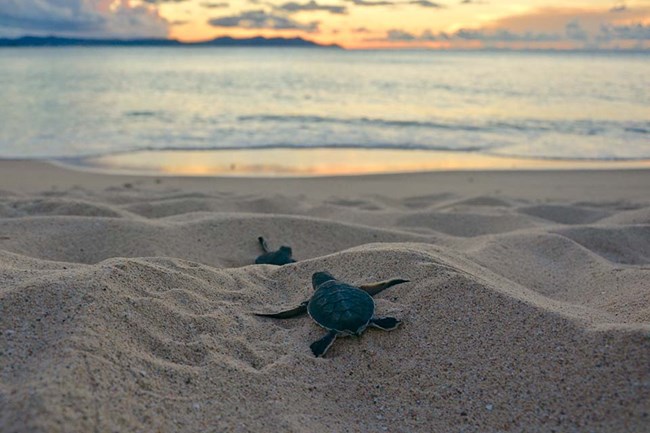
NPS photo 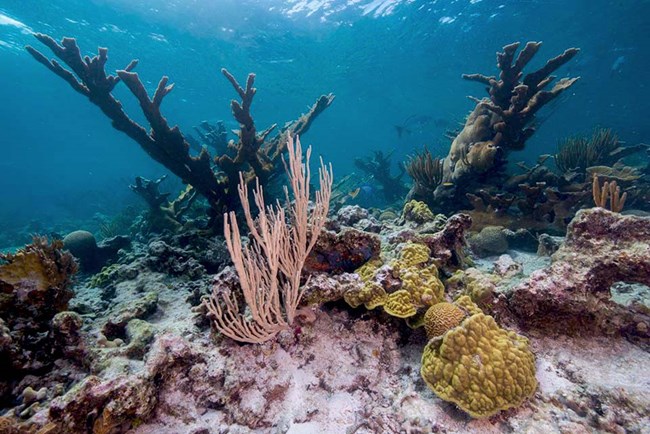
Susanna Pershern, NPS The biotic communities that currently exist on Buck Island and St. Croix have been significantly altered by humans since their arrival in the area some 6,000 years ago. These changes began with the entry of the islands' first human inhabitants, who cut down trees to build huts and villages, cleared forested areas to grow food crops, and brought non-native animals to the island. Environmental impacts resulting from human activity were greatly accelerated following the arrival of the first Europeans in the 1600s. As a result,since the 1600s over 50 species of animals have gone extinct across the Caribbean, including six species of birds, thirty-four mammals, and ten reptiles. Nearly all these extinctions were due to the destruction of natural habitat and the introduction of new predatory species, such dogs, cats, rats, and the mongoose (Herpertes javanicus auropunctatus). 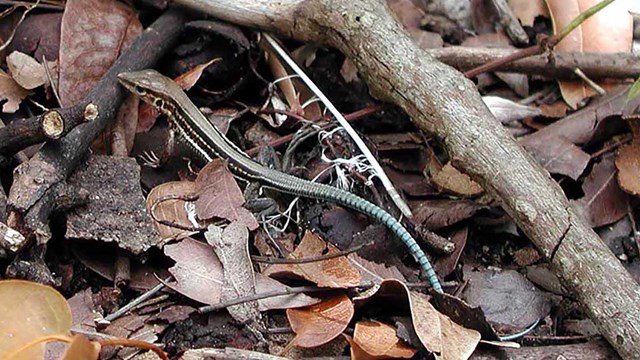
Animals
Learn about the animals the live on and around Buck Island 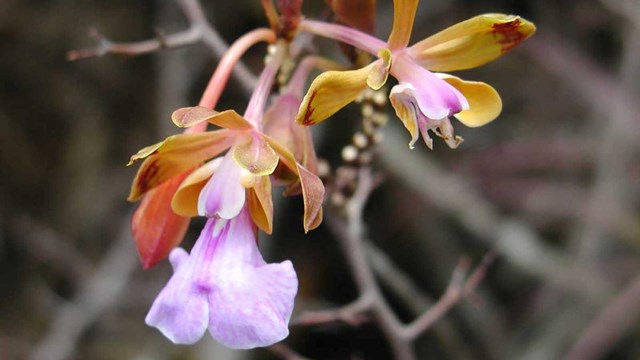
Plants
Learn about the plant life present on Buck Island. 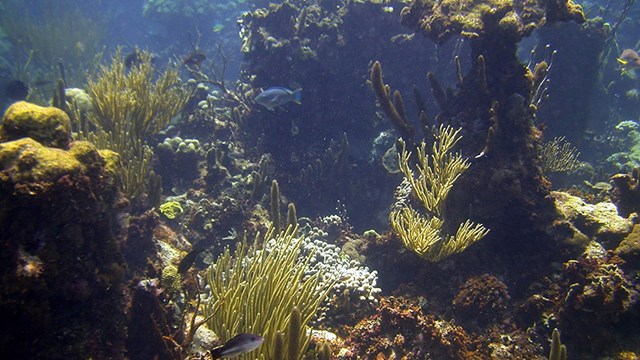
Natural Features and Ecosystems
Learn about the ecosystems and other natural features of Buck Island |
Last updated: April 6, 2018
